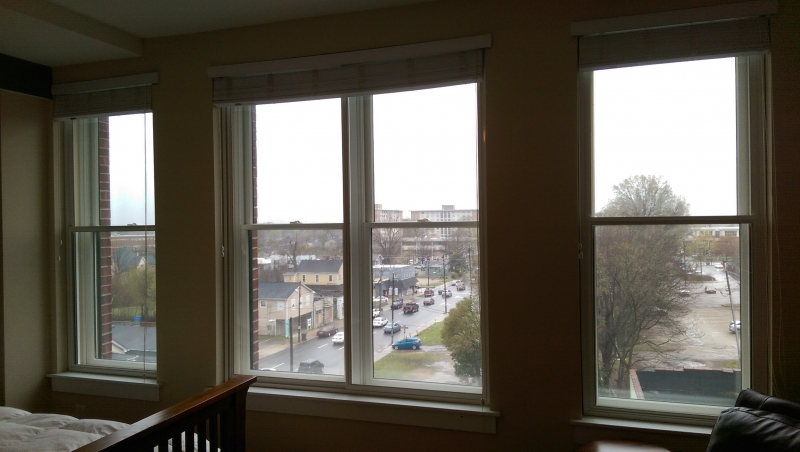This article was featured in HPB Magazine (http://www.ccr-mag.com/preserving-history-of-historical-buildings-windows/)

This is primarily because there is some confusion about the possible options, which can range from replacing double-pane windows to inserting sheets of Plexiglas. Available from various window suppliers, these products have a limited ability to reduce exterior noise.
As a result, many owners and managers are instead turning to the soundproofing industry for solutions engineered for maximum noise reduction to deliver true peace and quiet.
Replacement Windows
Multiple studies have shown that 90% of exterior noise enters through windows, not walls. Unfortunately, simply replacing the windows seldom adequately resolves the problem.
Double or triple pane windows, for example, filter out only slightly more noise than single pane, if any. Although effective at insulating from external heat or cold, these products are not truly engineered for soundproofing.
With double pane windows, the two pieces of glass within the frame vibrate like the two tines of a tuning fork which actually creates more noise. Also, the air space for both double and triple pane windows does very little to retard the sound vibrations.
Much of the noise that enters through windows comes through leaking window seals. With age, conventional window seals fail, so any partial relief experienced by replacing windows may be short-lived.
True Soundproofing Technology
To gain an edge over rivals, some hotels are turning to true soundproofing companies that have background and expertise engineering products used in the most noise sensitive environments in the world, like recording studios.
The companies have created a “second window” that can be installed easily in front of the existing windows. The product is designed specifically to match and function like the original window, no matter its design or whether it opens or closes.
This inner window essentially reduces noise from entering on three fronts: the type of materials used to make the pane, the ideal air space between the original window and insert, and finally improved, long-lasting seals. The combination can reduce external noise by up to 95%.
The first noise barrier is laminated glass, which dampens sound vibration much like a finger on a wine glass stops it from ringing when struck. An inner PVB layer of plastic further dampens sound vibrations.

Air space of 2–4 inches between the existing window and the soundproof window also significantly improves noise reduction because it isolates the window frame from external sound vibrations.
Finally, the company places spring-loaded seals in the second window frame. This puts a constant squeeze on the glass panels, which prevents sound leaks and helps to stop noise from vibrating through the glass.
When choosing such soundproofed windows for a hotel project, the most objective measure of sound reduction is the window’s Sound Transmission Class (STC) rating. In this rating system, the higher the number the more noise is stopped.
A typical rating for standard windows is 26 to 28, for example. The acoustic soundproof windows, by comparison, earn a 48 to 54 STC rating.
Since external noise can also enter sliding glass doors, which are common on ground floor hotel rooms or upper-level rooms with patios, similar soundproofing strategies can also be effectively applied in these applications.
Like the soundproof windows, a second sliding glass door can be added but mounted either inside or outside an existing sliding glass door. This can eliminate up to 95% of external noise entering through the patio door.
Additional Energy Savings
Soundproofing hotel windows and sliding glass doors can also provide benefits in reducing energy costs. Adding the inner window provides an additional layer of insulation, which can reduce the heating-cooling portion of energy bills by 15%-30%.
Whether hotel owners and managers seek to protect their customers from stressful external noise intrusion, offer more peace and quiet, or significantly reduce heating-cooling related energy costs, economically soundproofing existing windows, rather than replacing them, can provide a real competitive edge.
Randy Brown is the owner of Soundproof Windows, Inc., headquartered in Reno, Nev.
